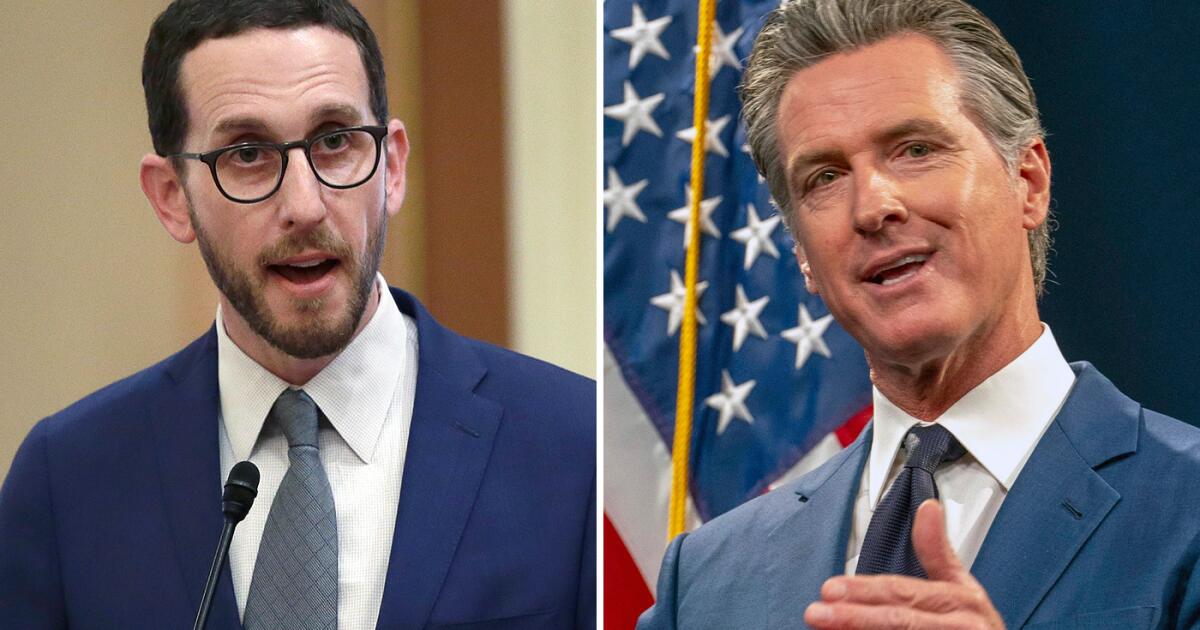Even as post-pandemic inflation continues to fall, many Americans still feel the sting of high prices for basic goods, such as groceries. And Republicans are desperate to blame voter unease on President Joe Biden, particularly as consumer confidence improves and people feel increasingly bullish about their personal finances.
But new polling on inflation suggests Democrats have an opening to reframe the issue as a discussion about corporate greed—an issue Democrats can turn to their advantage.
In a newly released survey, the progressive consortium Navigator Research found that 85% of voters now view corporate greed as a cause of inflation, with 59% calling it a “major” factor—a 15-percentage-point increase since January 2022.
“The fact that so many Americans now say that corporate greed is a root cause of inflation is an important turning point,” Maryann Cousens, polling and analytics associate for Navigator Research, told Daily Kos.
The feeling among Americans has become so pervasive that Dictionary.com just added the term “greedflation” to its entries, describing it as a rise in prices “caused by corporate executives or boards of directors, property owners, etc., solely to increase profits that are already healthy or excessive.”
It’s not that voter concerns about inflation are new; it’s that voters’ sense that corporations are profiting at the expense of average Americans by spiking prices is at an all-time high in Navigator’s polling.
In fact, voters’ belief that corporate greed is a “major” driver of inflation has jumped 17 points in the past two years among both independents (from 45% to 62%) and Democrats (55% to 72%).
Cousens told Daily Kos that voters are also clamoring for Congress to take action on the issue. Navigator’s 2022 midterm survey showed that Congress addressing inflation was “the top priority for midterm voters by a large margin,” according to Cousens.
And while Republicans sought to tag government spending as the biggest cause of inflation in the midterm, some Democrats successfully pointed to corporate greed as the main culprit for soaring prices.
One of them was Sen. Catherine Cortez Masto of Nevada, who narrowly won her hard-fought 2022 reelection bid in the swing state, where gas prices had spiked to $5.67 per gallon amid the campaign.
According to reporting from The Nevada Independent, Cortez Masto staffers said she frequently mentioned pocketbook issues, like the prices of prescription drugs, housing, and gasoline.
“[She would] say, ‘yeah, I don’t like the gas prices either,’ instead of just trying to sweep it under the rug,” Frank Hawk, president of the Southwest Regional Council of Carpenters, told the Independent’s Gabby Birenbaum. “And then [she] really pointed out what’s a little more true, [which] is that you have oil companies and pharmaceutical companies and Big Corporate America making record profits on a daily basis, and we as the middle class are struggling to fill our gas tanks. And that should make us angry. And I think her passion came through, along with her sincerity.”
In other words, there’s precedent for Democratic lawmakers to successfully empathize with voters and highlight their work to ease the cost of living. For example, President Biden’s Inflation Reduction Act, which cleared Congress on a party-line vote, has forced a $35 monthly cap on insulin for Medicare beneficiaries. And that price is quickly becoming available to a much wider swath of Americans as drug companies cap their own price or offer savings programs.
Democrats have plenty to use to contrast themselves with Republicans. The Inflation Reduction Act also empowers Medicare to negotiate prescription drug prices, and Biden has put forward practical steps to raise taxes on billionaires. In the meantime, Donald Trump is vowing to repeal the Affordable Care Act, which, if successful, could strip health insurance from tens of millions of Americans. Trump is also floating the implementation of 10% tariffs on nearly all imports to the U.S, which would functionally raise taxes for U.S. consumers by more than $300 billion a year, according to the conservative Tax Foundation think tank.
Last month, Navigator released polling of likely general election voters in 61 battleground districts, showing that congressional Republicans still hold a 10-point trust advantage on the issue of “fighting inflation.” However, once Navigator actually named the lawmakers, Democratic legislators in those districts edged out Republican lawmakers. Forty-five percent of voters said they trust their Democratic representative “a lot” or “some” to fight inflation, while 42% said the same of their GOP representative.
Navigator’s most recent poll found the most persuasive messages on price increases focus on corporate profits and CEO salaries being “at an all-time high, outpacing inflation” while corporations are “raising prices for families and small businesses.” It’s a message the White House and Democrats should be pushing proactively, particularly given the fact that the economy is overall on much stronger footing than it was during the 2022 midterms.
The country’s economic upswing, coupled with Americans increasing belief in greedflation, suggests voters are ripe for an argument that the high price of consumer goods is a product of corporate greed, not economic missteps. And Democrats have a plan for that.
Republicans demanded border security, worked on a compromise deal with Democrats, and now want to blow the whole thing up. Biden is promising to remind Americans every day that the Republican Party is at fault for the lack of solutions to the problems they claim are most important.
Campaign Action



















.jpg&h=630&w=1200&q=75&v=20170226&c=1&w=120&resize=120,86&ssl=1)
